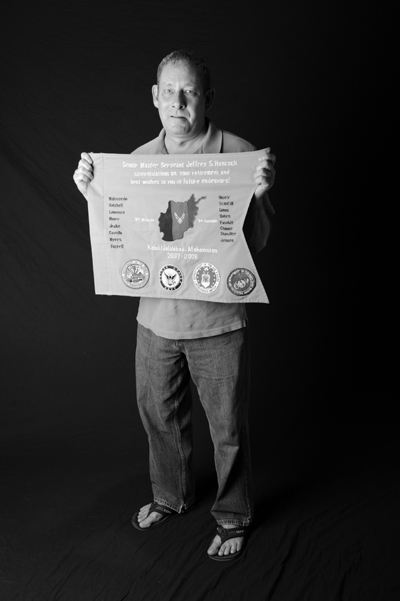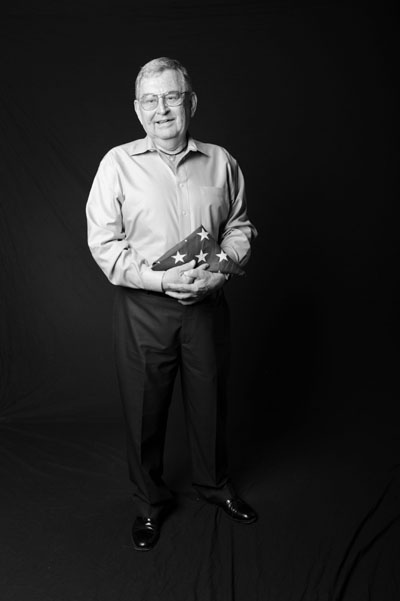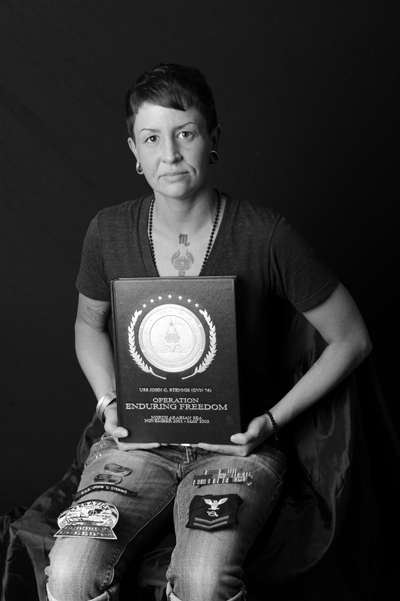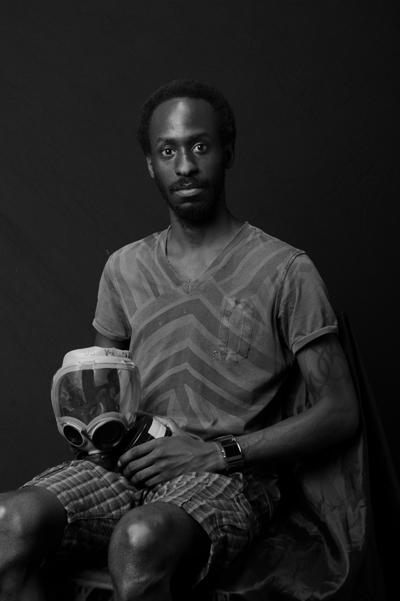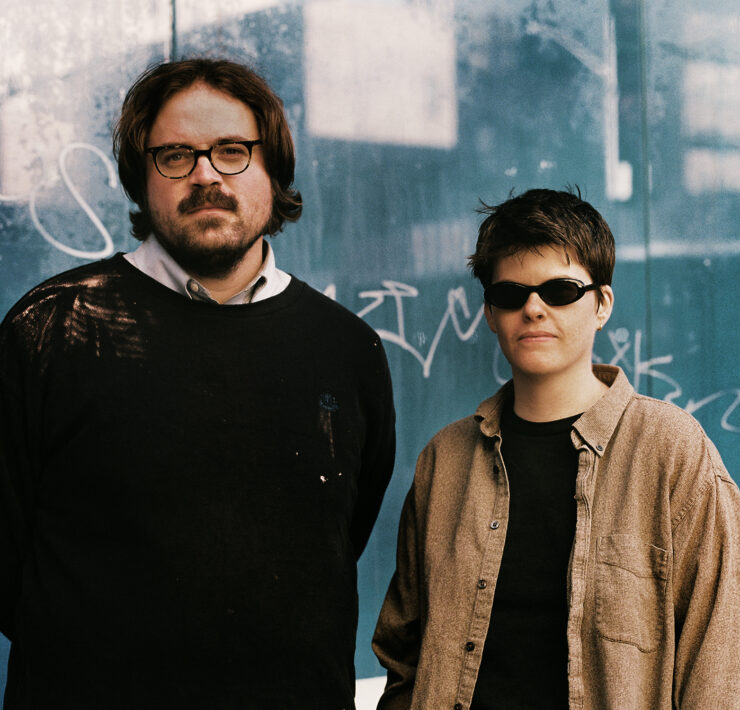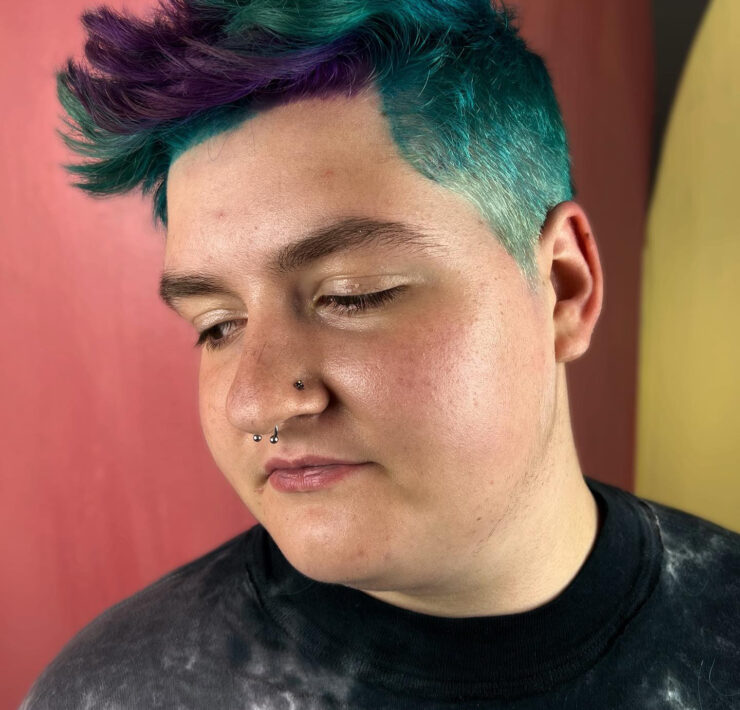Home of the Brave: LGBT veterans share their stories for Pride

Later this year, the United States military is poised to repeal the policy known as Don’t Ask Don’t Tell. Since its inception in 1992, critics have called it discriminatory, forbidding gays and lesbians from serving their country openly, as they are. This June, led by the Servicemembers Legal Defense Network, Colorado LGBT veterans will march as grand marshals in the PrideFest parade. Here, before and after the parade, some of them share their stories.
It was just a matter of time before Jackie Campbell knew she’d be drafted. So, in 1971, enlisted in the Navy, as a male. “It was a great job, a good field,” she said. “I was a jet mechanic on rescue helicopters in Vietnam.” But she says today, she wasn’t cut out to be in the military. Eventually reaching 2nd Class Petty Officer, Campbell, who now lives in Loveland, said as a heterosexual male in 1971, she never thought homosexuality was an issue. And today, she hopes if she were to have come out as trans, it still wouldn’t have been an issue so long as she was a good solider. “With today’s all volunteer military, individuals will have to learn to tolerate and accept,” she said. Campbell said she’s seen acceptance at her local VA, where she is out as a transgender female. “I have not been denied any services even while going through my (sexual reassignment surgery) process.”
When Paige O’Hanlon enlisted into the U.S. Army in 1989 she was asked on her application if she was a homosexual. She had two choices, tell the truth and be rejected, or lie and live her dream. She choose the later. And nearly four years and one war later, she did just that. But as Desert Storm came to a close – she hauled fuel across the Middle East in the dead of night – and the 1992 policy of Don’t Ask Don’t Tell was signed into law, the struggle to keep her secret became too much. “If you asked anyone, they would have told you I was going to be a lifer,” she said. O’Hanlon said she was a good solider, but alleges that her 1st Sgt. knew she was a lesbian and made her life more difficult. “It got to be too much for a 22-year-old,” she said. Today, O’Hanlon lives with her fiancée – they’ve been together three years – and their children. O’Hanlon said she hopes to see the military extend spousal benefits after the repeal of Don’t Ask Don’t Tell is finalized. “It’s contradictory,” she said.
When Jeffery “Hank” Hancock served in as Senior Mast Sergeant in the Air Force he had Top Secret clearance. But that whatever the mission – he had several in Germany, Guam, Turkey, Nevada – there was an even bigger secret. Hancock was gay and he couldn’t let anyone find out, so he married two of his best girl friends and dated a third. “When you’re married, you’re safe from scrutiny, and I found that being divorced was a good excuse to explain why I wasn’t dating or in a serious relationship,” he said. Hancock, now 48, retired after 26 years of service in 2008. He hasn’t applied for any of his benefits yet. And neither the Department of Defense nor Veteran Affairs provide benefits to same-sex partners. “I think repeal is long over due,” he said. “We need to do everything possible to ensure that conservatives are not allowed to obstruct the certification process.”
John J. Kelly wants you to know ending the Don’t Ask Don’t Tell policy doesn’t just reverse 17 years of discrimination. It’s 68, to be exact. Because before President Bill Clinton signed the law into effect, there was another policy: homosexuality in the U.S. military was illegal. “I survived one witch hunt,” he said. “And it was obvious that the odds of not being found out were getting slim.” Kelly, 70, said he was honorably discharged after eight years of service in 1967. He was a staff sergeant in the Air Force. All this time he hasn’t been denied any benefits but he can’t help but think about those who have been denied them. “President Obama’s signature on repealing Don’t Ask Don’t Tell gave those who served in World War II, Korea, Vietnam and the more recent conflicts their honor back.”
Heidi Karpierz found a new family when she served in the operations intelligence division of the U.S. Navy. From 2000 to 2006 she lived, worked, laughed and cried with her mates. “We were a family,” she said. And because of that, she said, her homosexuality was never an issue. “You see, it wasn’t so much about ‘accepting an issue,’ she said. Because in my experience it wasn’t an issue that needed accepting.” But she knows she was one of the lucky ones. The 2nd Class petty officer – who served during Operation Enduring Freedom – believes its necessary for Don’t Ask Don’t Tell to be repealed so others can experience all the wonders of the military. Now 32 and a student, Karpierz said she’s still adjusting to a world with little order. And she realizes, more now than ever what her military family meant to her. “I may not have been able to completely appreciate the friendship, camaraderie and core values (of the Navy) had I not left,” she said. “You aren’t always aware of what you have until it’s gone.”
Chucky Ray Johnson has taken the skills he learned in the Air Force into the private sector. And today he works in the Denver Tech Center for an IT department. “I have taken the skills that I have learned from my time being in active duty and have been able to use them in every aspect of my life as a civilian,” he said. But those skills are more than just how to fix a computer, he said. He learned how to work together as a team and foster comradory with people he’d never would have incountered in civilian life. Honorably discharged, the Los Angeles native said his sexual orientation never stopped him from serving his country and it shouldn’t stop anyone ever again. Johnson, 30, was out to a limited number of his peers. “From my experience,” he said, “there’s so many other things that we can focus on.”
Irene Chaves wanted to be judged by the content of her character, not her bedfellows. So she led a life of secrecy for more than eight years in the U.S Army National Guard, 505 Engineering Brigade. Chavez served for eight years, four and a half of them being active duty and spending a year in Iraq in 2005. Now, Chaves – at the age of 29 and now an open lesbian – is a college student living in Fort Collins, Colo. The staff sergeant is wary of the repeal of Don’t Ask, Don’t Tell. While she hasn’t been discriminated against by her local Veterans Affairs, she’s worried about the implementation of the new policy. “I think it’s going to be difficult. You’re trying to change ignorant people’s perspectives, so that’s going to take time,” she said. But added, “I think a lot of us would be more willing to stay in if we were able to be who we are. We serve just like anyone else.” Born in San Jose, Costa Rica, Chaves said she’d re-enlist all over again if she could. “To be honest, maybe I would have come out earlier.”
Correction: an earlier version of this story reported transgender individuals would be able to serve openly in the military after the repeal of Don’t Ask Don’t Tell. The repeal of Don’t Ask Don’t Tell affects only sexual orientation, not gender identity. In a Nov. 30, 2010, press release the Center for Transgender Equality said, “We call on the military to also take action to repeal the policies which bar transgender servicemembers from enlisting or serving openly.”
What's Your Reaction?
Nikki is Out Front Colorado's northern corespondent. Contact her at nikki@outfrontcolorado.com.




